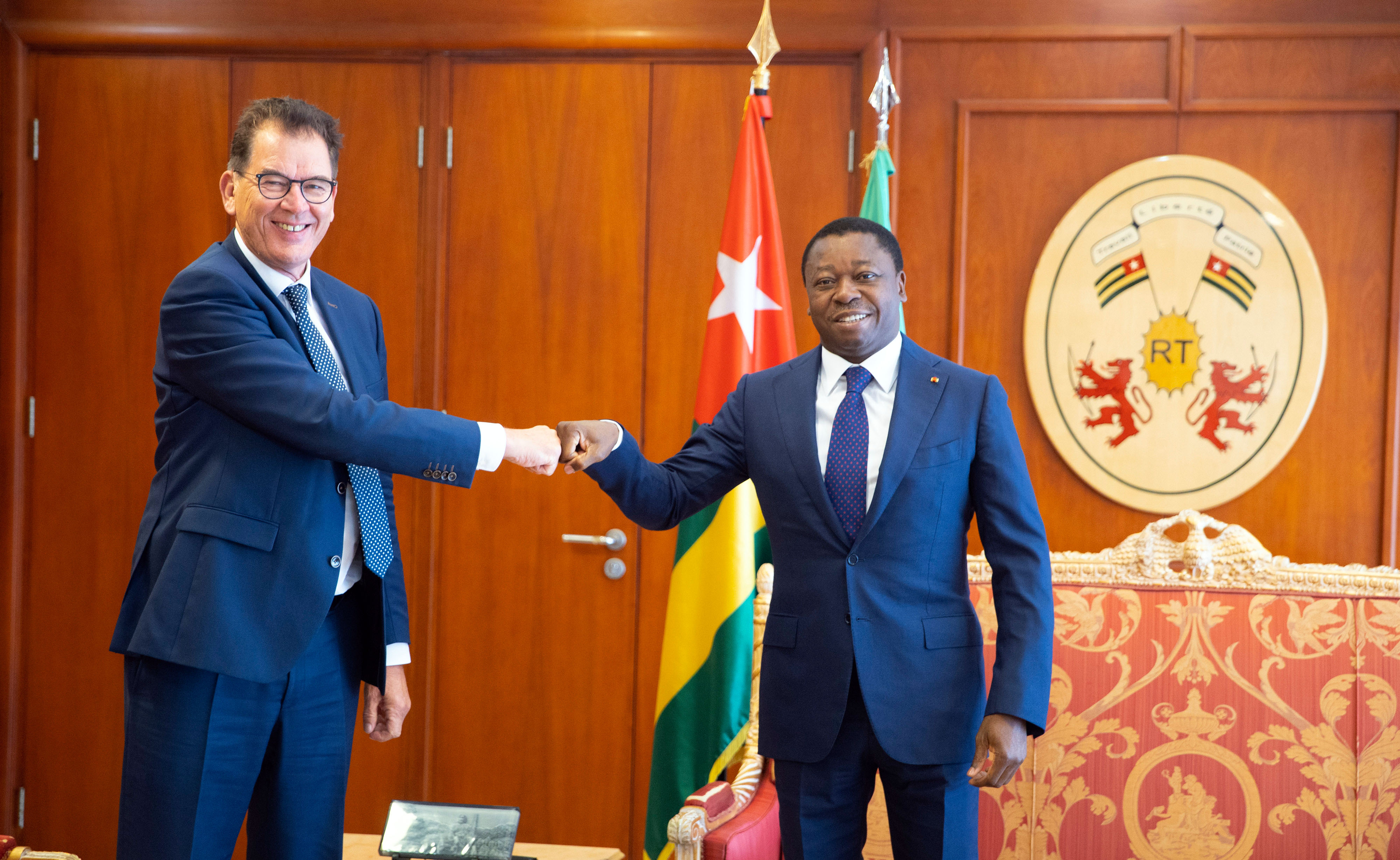Visit to West Africa Minister Müller signs reform partnership agreement with Togo
Following the ceremony, Minister Müller and Prime Minister Victoire Tomegah Dogbé laid the foundation stone for a new training centre. Through the reform partnership, the German Development Ministry offers Togo intensified cooperation to support growth, jobs and reforms.
Minister Müller stated:
“Togo is setting an example for the region. One of the poorest countries in the world, it has managed over the last few years, through courageous economic reforms and sustainable budget policies, to become a country focused on reform. It is one of the three top performers when it comes to improving the economic and business environment. Together, we want to achieve further progress on this transformation. The focus will be on boosting sustainable industrial development, developing the vocational training system, fostering good governance, investing in renewable energy and strengthening the health system. We are providing additional funding for these purposes and working to encourage private investment.
”Compliance with democratic principles and human rights standards are fundamental prerequisites for our partnership. The expansion of our cooperation is contingent on measurable contributions that the Togolese government makes towards financing the training system, on political and administrative reforms and on the implementation of a national anti-corruption strategy. We expect the government to make continued systematic progress on these fronts. And we support such progress in very practical ways through our programmes to foster municipal self-government, political participation, transparency and anti-corruption efforts.
“This will also help Togo emerge from the COVID-19 crisis. Last year, economic growth dropped from the projected rate of 5.5 per cent to 1.8 per cent. The World Bank estimates that more than 60 per cent of all jobs in Togo are at risk because of the pandemic. In order to recover, the country needs a stronger health system, an economic upturn, secure jobs and good trade relations. Our reform partnership with Togo is making an important contribution towards that. The agricultural sector in particular offers great potential for employment for the country's young people – nearly 60 per cent of Togo's people are under the age of 25.”
The specific goals of the reform partnership include
- the improvement of vocational training,
- support for the private sector and improvement of the trade and investment environment, for example through the establishment of an export and investment promotion agency, and
- assistance for municipalities' efforts for financial transparency, good governance and responsive services for the people.
Through its reform partnerships, the German Development Ministry provides support to reform-oriented countries, thus putting the Marshall Plan with Africa and the G20 Compact with Africa initiative into action.
In June 2017, it entered into the first three reform partnerships with Tunisia, Ghana and Côte d'Ivoire. Since then, further partnerships have been established with Ethiopia, Morocco and Senegal.
- With our support, Ghana has quadrupled its tax revenue. Taxes are now collected from 900,000 people more than before.
- Tunisia has further developed its anti-corruption authority and its investment agency, and it has set up a bank to foster the development of small and medium-sized enterprises. All this is providing significant impetus to the economy and to the generation of jobs. Over the last few years, more than 60,000 new jobs have been created thanks to these efforts.
- Côte d'Ivoire has adopted a plan for nationwide electrification – an important prerequisite for private sector development.
